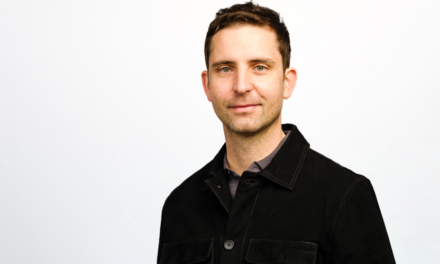Nour Awad is a software developer from Bridgeport, Connecticut, with over eight years of experience specializing in web and mobile app development, cloud computing, and AI integration. A graduate of the University of Connecticut with a degree in Computer Science, he is passionate about creating innovative, scalable, and secure solutions that enhance user experiences.
Throughout his career, Nour has worked on projects in fintech, healthcare, and e-commerce, focusing on building efficient, high-performance applications. His expertise includes programming in Python, JavaScript, and C#, as well as working with frameworks like React, Angular, and .NET. He stays ahead of industry trends by continuously expanding his knowledge in AI-driven automation and cloud technologies.
Beyond development, Nour is dedicated to mentorship and community involvement. He actively mentors aspiring developers, participates in hackathons, and volunteers to teach coding to underprivileged youth, striving to make technology more accessible.
Outside of work, Nour Awad enjoys hiking, photography, and exploring new cuisines. He values continuous learning, collaboration, and the opportunity to create impactful technology that solves real-world problems. His mission is to push the boundaries of software development while fostering an inclusive tech community.
What drew you to software development, and was there a defining moment that made you realize this was your path?
From a young age, I was drawn to technology, but I didn’t immediately see it as a career path. I was always curious about how things worked, whether it was taking apart household electronics or experimenting with simple coding projects in high school. The defining moment came when I built my first functional web application in college. It was a small project, but the ability to create something from scratch and see it work in real time was exhilarating. That was when I knew—this wasn’t just a skill; it was something I wanted to do for the rest of my life.
With technology evolving so rapidly, how do you stay ahead of industry trends and keep your skills sharp?
Staying relevant in tech requires constant learning. I set aside time each week to explore new technologies, whether through online courses, research papers, or hands-on experimentation. I also immerse myself in the developer community—following industry leaders, attending conferences, and participating in hackathons. But the most effective way to stay sharp is by building. Whether it’s a side project or a real-world implementation at work, applying new knowledge is the best way to truly understand it.
What’s a common misconception about software development that you wish more people understood?
Many people think software development is just about writing code. In reality, coding is only a fraction of the job. A significant part of the process involves problem-solving, designing scalable systems, understanding user needs, and collaborating with teams to bring ideas to life. Good software development isn’t about how fast you can type out lines of code—it’s about creating effective, maintainable solutions that provide real value.
Have you ever faced a major challenge or failure in your career? How did you handle it?
Absolutely. One of my biggest challenges came early in my career when I was leading the development of a new feature for a fintech platform. I underestimated the complexity of integrating multiple data sources, and despite rigorous testing, we ran into unexpected performance issues after launch. It was a tough moment, but I learned a valuable lesson: never rush scalability planning. Instead of panicking, I took ownership of the issue, worked closely with my team to refactor key parts of the system, and ultimately improved the product beyond its original scope. That experience reinforced the importance of patience, collaboration, and anticipating potential roadblocks.
If you could go back and give advice to your younger self when you were just starting out, what would it be?
I’d tell myself to be more comfortable with uncertainty. When I was starting out, I thought I had to have everything figured out—what tech stack to master, which field to specialize in. But in reality, growth in tech comes from staying adaptable and open to change. I’d also tell myself not to fear failure. Every mistake is an opportunity to learn, and the best developers are the ones who embrace challenges rather than avoid them.
You’ve worked on projects in fintech, healthcare, and e-commerce. Is there an industry you’re particularly passionate about working in?
While I enjoy tackling problems in different industries, I’m particularly interested in the intersection of AI and healthcare. There’s something incredibly meaningful about using technology to improve people’s well-being. AI-driven diagnostics, predictive analytics for patient care, and automating tedious administrative tasks all have the potential to make healthcare more efficient and accessible. It’s a field where technology can have a tangible impact on human lives, and that excites me.
Beyond your technical skills, what do you think sets you apart as a developer?
I’d say my ability to bridge the gap between technical solutions and user needs. I don’t just focus on how to make something work—I think about how to make it work in a way that’s intuitive, efficient, and scalable. I also prioritize communication. The best developers aren’t just great at coding; they’re great at explaining their ideas, working with non-technical stakeholders, and adapting to the needs of a project.
You’re passionate about mentorship and teaching coding to underprivileged youth. What motivates you to give back?
I wouldn’t be where I am today without the guidance and mentorship I received early in my career. I know firsthand how powerful it can be to have someone believe in you and help you navigate the complexities of learning to code. Tech is an industry full of opportunities, but not everyone has equal access to resources or support. If I can help even one person build confidence and pursue a career in technology, it’s worth it.
What’s a piece of technology you’re excited about right now that you think will shape the future?
Edge AI is something I’m really excited about. The ability to run AI models on edge devices—like smartphones, IoT devices, and even wearables—opens up new possibilities for privacy, efficiency, and real-time processing. Instead of relying on cloud-based processing, AI can be executed directly on a user’s device, reducing latency and improving security. This shift has massive implications for industries like healthcare, smart cities, and autonomous systems.
What’s next for you? Any goals or projects you’re particularly excited about?
Right now, I’m focused on expanding my knowledge of AI-driven automation and finding ways to implement it in real-world applications. I’m also in the process of building a personal platform to share my experiences, insights, and mentorship opportunities with a wider audience. Long term, I’d love to contribute to open-source projects that make AI and machine learning more accessible to developers of all backgrounds. My goal is always to keep learning, creating, and making a positive impact.




